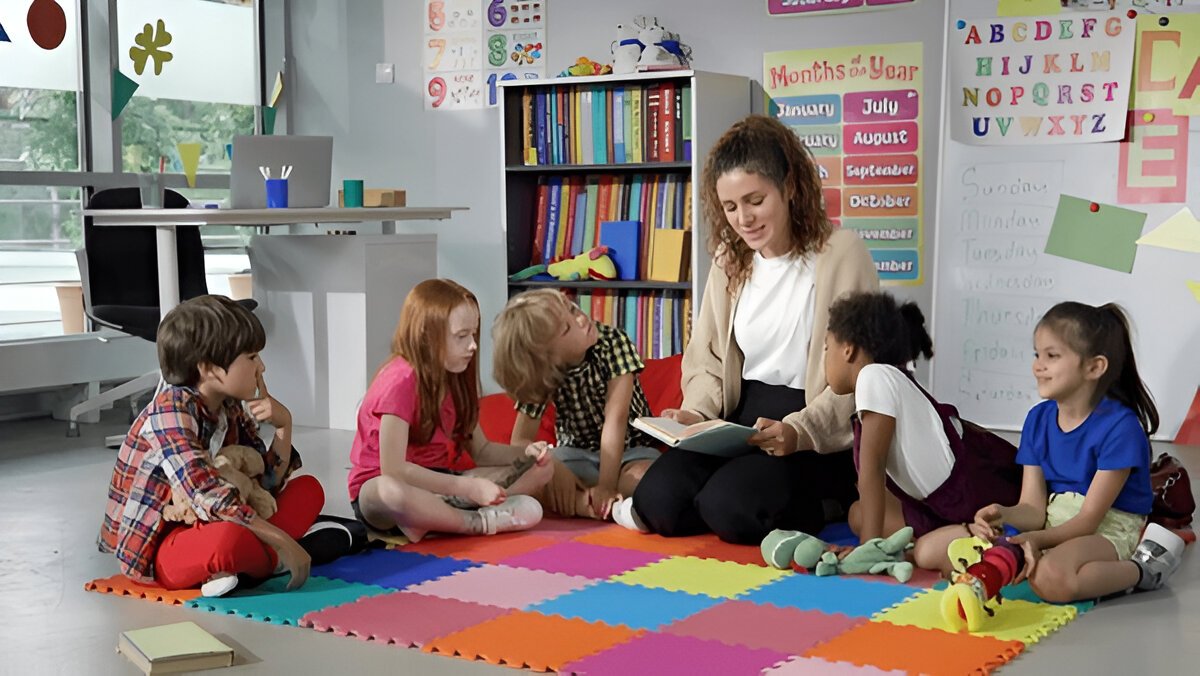Kids these days are bombarded with more info than I ever had to deal with. But handing 6 year olds a good short story?. And suddenly they’re off hanging out with dragons, or saving princesses, or just sitting with talking rabbits. It’s wild what their brains can do with a sprinkle of imagination.
At this age kids are basically curiosity machines. They ask why about everything, and honestly, short stories are like rocket fuel for that curiosity. Every story? A new world, a new lesson, sometimes even a sneaky little life hack hiding between the lines. And yeah, it’s not just about keeping them busy. These stories are quietly teaching them how to feel stuff, use big words, and think in new ways and without it feeling like homework? That’s why kids love them, so let’s explore the importance and benifits of short stories for 6 year olds.
Unlocking Imagination: The Importance of Short Stories for 6 year olds

Kids these days are practically boambarded with worthless content that dims their thinking ability. But there’s something kinda magical about short stories, especially for 6 year olds. It’s like,they’re off to some wild, imaginary universe before you can say bedtime.
Every new story is a whole new ride. Pirates, unicorns, grumpy bears etc etc. And honestly, it’s not just about killing time before lights out. These stories sneak in life lessons, sometimes so smooth the kids don’t even realize they’re learning stuff. Plus, getting lost in all those different worlds is like a creative workout. It helps kids build empathy, pick up new words, and start figuring out how to solve problems without melting down (well, sometimes).
Adding on to the context: Carepointe Academy says that,
“The importance of storytelling to kids is cannot be understated. In addition to providing an excellent opportunity to bond with your child, storytelling plays an important role in language and cognitive development. Stories are a powerful tool for teaching kids about the world around them.
When children hear stories, it can help them learn about important values as they are introduced to new ideas, and exercise their creative thinking. Storytelling also enriches children’s emotional intelligence.”
Cognitive Development and Imagination in Early Childhood

Short stories are a total game changers for cognitive development and imagination for 6 year olds. You toss a kid a story about dragons or talking pancakes, and suddenly they’re building entire worlds in their heads. Vivid scenes, weird characters, wild settings etc. It’s not just about keeping them entertained, either. They’re literally flexing their imagination and learning how to dream up stuff, which, let’s be honest, we could all use more of.
These stories sneak in some real brain food with abstract ideas, confusing concepts, without making it feel like homework. So you’ve got 6 year olds out here figuring out cause and effect of charcters in short stories, piecing together clues, and making predictions like tiny detectives in pajamas.
If you don’t believe me alone then you can try reading this blog on: Psychological Perspectives on Storytelling and Cognitive Development which says that,
Psychological research underscores the significance of storytelling in cognitive development, viewing it as a rich context for mental expansion. From the perspectives of cognitive psychology and developmental psychology, storytelling transcends mere entertainment to become an interactive platform for cognitive enhancement.
Delving into the psychological facets:
- Cognitive development is influenced by the interactive nature of storytelling, which demands active mental engagement from the listener.
- The structure of a story often mirrors the way humans think and process information, allowing for an intuitive understanding of causal relationships and sequencing.
- Emotional and social development is nurtured as stories provide insights into human behavior and interpersonal dynamics, essential components of social cognition.
- Storytelling encourages the use of imagination and abstract thought, which are critical cognitive functions for higher-order thinking and creativity.
How Short Stories Foster Creativity in 6-Year-Olds
A 6 year olds development depends heavily on creativity which short stories effectively nurture as a method of talent development. Children who experience fantasy stories learn to think creatively by discovering new ideas. The process of creating characters and settings along with plot twists requires a special form of imaginative thinking which stimulates creative brain areas. The mental process supports children to develop their ability to generate original solutions and ideas which helps them across all life domains.
Short stories present situations that challenge normal patterns or showcase unusual conditions so children learn to evaluate different approaches and potential solutions. The different storylines help children develop adaptable thinking because they learn multiple solution methods for problems and stories. Children develop creative solutions by watching characters encounter different challenges and embark on various adventures.
The Role of Short Stories in Language Acquisition

Early childhood development heavily depends on language acquisition which short stories effectively support. The exposure to language patterns in stories (narration) helps children to develop their vocabulary. 6 year olds benefit greatly from short stories because their rhythmic and repetitive structure helps them remember language patterns and new vocabulary words.
Children will retain new words better when these words appear in interesting stories. When children experience new vocabulary within story contexts they gain better understanding of word meanings which makes it simpler to apply those words into their speech. Children learn language better through meaningful experiences than through memorization because they witness how words operate in authentic situations.
Reading short stories aloud also serves as an essential method for building phonological awareness because it teaches students to identify and work with spoken language sounds.
Emotional Intelligence: Understanding Feelings Through Stories

Emotional intelligence is a vital competency for young children which enables them to identify their emotions along with others. Short stories serve as an excellent educational resource to build this important aspect of child development. Children experience various emotions and situations through character experiences which enables them to build empathy and emotional understanding. The process of feeling identification with characters allows kids to better comprehend and express their personal emotional states.
Short stories frequently explore typical childhood situations together with their obstacles including friendship development and fear management and conflict resolution. Through these stories children receive a protected environment for emotional exploration which teaches them how to handle challenging circumstances. Children develop how to manage emotions for real life situations by observing how fictional characters manage their emotions and problems.
Building a Love for Reading: The Gateway to Lifelong Learning

Teaching 6 year olds how to read short stories stands as one of the best presents because it leads to continuous education and self-improvement. Short stories work well to build reading interest because their brief nature and interesting stories help young readers easily understand and enjoy them. Children gain a feeling of success through story completion which motivates them to explore more books.
The variety of genres and story themes available in short stories helps children uncover their reading interests. Every child can find a short story that matches their interest because the collection includes adventure and fantasy along with mystery and humor. The diverse selection of stories both maintains readers’ interest and expands their understanding of different cultural viewpoints and intellectual concepts. When children discover stories that match their preferences they form personal reading connections which leads them to become enthusiastic readers.
Reading short stories together creates a special connection between parents and their children. Reading together helps people develop positive feelings about books while teaching readers that books serve as both valuable and enjoyable pastimes. Parents should enhance their story experience by having discussions about the story with their children.
Short Stories as Tools for Moral Lessons and Values

For generations short stories have functioned as educational tools which teach moral principles to young readers. Children grasp life concepts such as honesty and integrity along with kindness and responsibility through the actions and experiences of fictional characters. The stories present concrete moral examples which help young readers understand abstract values by making them more accessible. Through observing the outcomes of character decisions children understand how their choices affect others and why they must make positive decisions.
Through these narratives children get the chance to think about their personal values which strengthens their ability to reason morally. Children who engage with these stories learn how to handle complicated social and moral problems while building a solid ethical foundation.
Short stories frequently highlight how empathy together with understanding play vital roles in human interactions. The presentation of varied characters along with their distinct points of view helps children develop both perspective-taking abilities and emotional understanding for others.
Engaging Storytelling Techniques for Parents and Educators

The skill of storytelling functions as an art that significantly improves the effectiveness of short stories for 6 year olds. Storytelling becomes more effective and memorable when parents and educators implement multiple techniques. The art of expressive reading represents one storytelling technique. Storytellers achieve better audience engagement through character voice differentiation as well as tone and pace adjustments while using sound effects to animate narratives and draw child attention. Young listeners find the story more immersive and enjoyable when it is presented through this dynamic approach.
Storytelling becomes more effective when children get involved through interactive storytelling methods. Storytellers should use open-ended questions together with prompts for children to predict future events and invitations for them to perform story elements.
Recommended Short Stories for 6 Year Olds
- “The Gruffalo” by Julia Donaldson: The Gruffalo is a children’s picture book by the English author Julia Donaldson, illustrated by Axel Scheffler. It tells the story of a mouse strolling in a wood and encountering a series of predators culminating in the fictional ‘Gruffalo’. (Source: Wikipedia)
- “Where the Wild Things Are” by Maurice Sendak: Where the Wild Things Are is a 1963 children’s picture book written and illustrated by American author and illustrator, Maurice Sendak, originally published in hardcover by Harper & Row. (Source: Wikipedia)
- “Frog and Toad Are Friends” by Arnold Lobel: Frog and Toad Are Friends is an American children’s picture book, written and illustrated by Arnold Lobel and published by Harper & Row in 1970.[1] It inaugurated the Frog and Toad series, whose four books each comprise five easy-to-read short stories. (Source: Wikipedia)
- “The Tale of Peter Rabbit” by Beatrix Potter: The Tale of Peter Rabbit is a children’s book written and illustrated by Beatrix Potter that follows mischievous and disobedient young Peter Rabbit as he gets into, and is chased around, the garden of Mr. McGregor. (Source: Wikipedia)
Conclusion: Cultivating Imagination Through Short Stories

Short stories help 6 year olds through entertainment while providing essential developmental benefits for their mental and emotional growth and moral development. Through imaginative story engagement children develop their vocabulary while enhancing their critical thinking abilities and their emotional awareness about themselves and their environment. Through diverse characters and scenarios in short stories children develop empathy and learn to handle sophisticated social and moral challenges.
Furthermore short stories establish an essential base that leads readers to develop a lifelong passion for reading. Children who discover storytelling joy gain access to knowledge along with creative possibilities and personal development opportunities. Short stories present a perfect reading option for young readers because their engaging format helps children discover new ideas and perspectives. Through expressive storytelling methods combined with interactive techniques parents and educators can increase the lasting impact of these stories for their children. I hope that you have found the answer that you were looking for. Check out Kinzy Club Blogs for more such helpful articles.
Also do check our Kinzy App to create fun memorable stories through our advanced Ai assistant with your kids.
Try out our App:
App Store: https://apps.apple.com/in/app/kinzy/id6743426150
Play Store: https://play.google.com/store/apps/details?id=club.kinzy.app&hl=en_IN ↩︎




